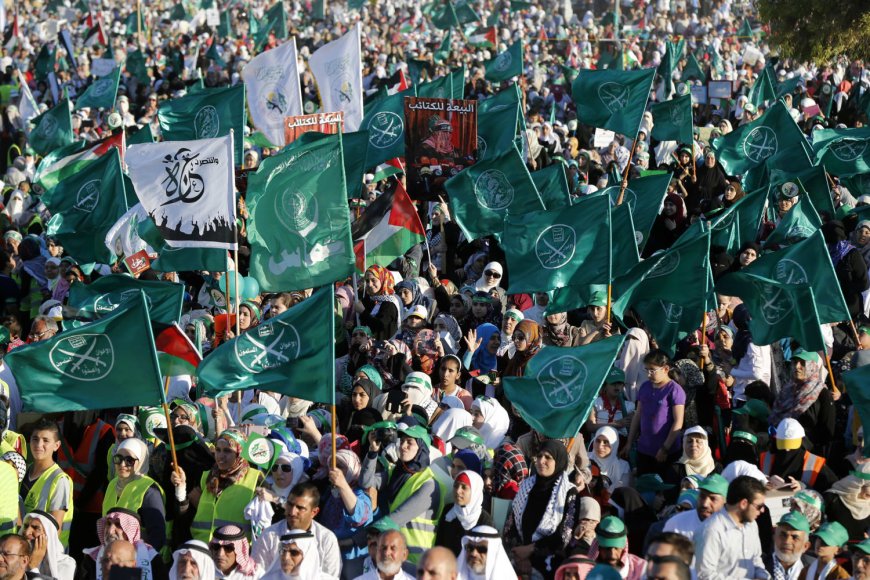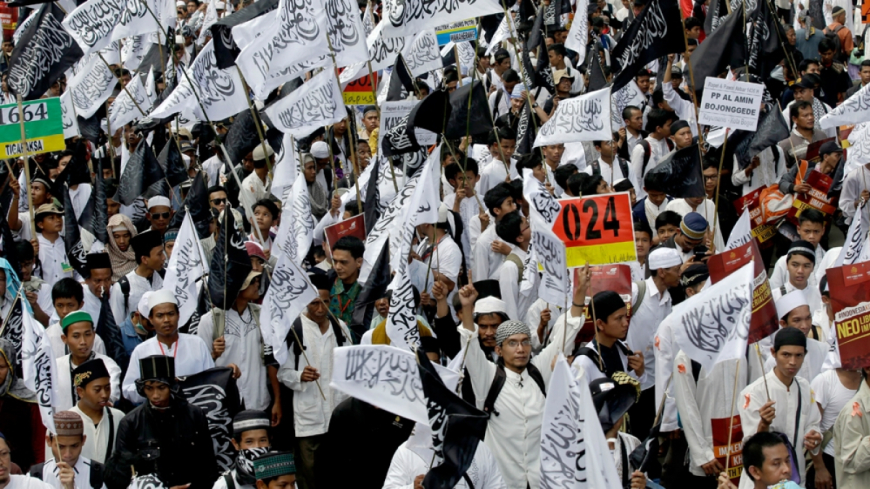Murkomen Gazettes 2, Including Muslim Brotherhood, As Terror Groups
Murkomen stated that the directive will remain in effect indefinitely unless revoked by him or overturned by a court ruling.

Interior Cabinet Secretary Kipchumba Murkomen has officially designated the Muslim Brotherhood and Hizb-ur-Tahrir as terrorist organisations under the 2025 Prevention of Terrorism Order.
In a gazette notice issued on September 19, Murkomen stated that the directive will remain in effect indefinitely unless revoked by him or overturned by a court ruling.
The declaration effectively criminalises any form of funding, support, or operations linked to these groups within Kenya.

Supporters of the Jordanian Muslim Brotherhood wave Jordanian, Palestinian and Islamic flags in Amman on Aug. 8, 2014. /NBC NEWS
"The entities specified in the Schedule are declared to be specified entities under section 3(3) of the Prevention of Terrorism Act," the notice read in part.
Adding “The declaration shall remain in force until it is revoked by the Cabinet Secretary or by order of the court."
Under Section 3(3) of the Act, the government is authorised to freeze assets, prohibit gatherings, and take legal action against individuals linked to banned organisations.
The law also grants security agencies the power to probe suspected cells, request extended detention of suspects with court approval, and dismantle financial or logistical networks connected to such groups.
The Muslim Brotherhood, a powerful Sunni Islamist movement established in Egypt in 1928, has spread globally through its branches and affiliates.
Blending Islamic revivalist ideals with social, educational, and political activism, it pushes for governance rooted in Islamic law.
However, it has long faced accusations of fueling extremism, engaging in violence, and exploiting politics, despite presenting itself as a peaceful political movement.
As a result, it has been banned in several countries, including Bahrain, Egypt, Jordan, Russia, Saudi Arabia, Syria, the UAE, and now Kenya.
Meanwhile, Hizb ut-Tahrir is a transnational Islamist organisation advocating for the restoration of a global Islamic caliphate.
Operating across multiple countries, it relies on political mobilisation and digital platforms to spread its ideology and undermine existing states. It has also been banned in the UK, India, and most recently, Kenya.

The Hizb ut-Tahrir group which has tens of thousands of members in Indonesia. /AL JAZEERA






